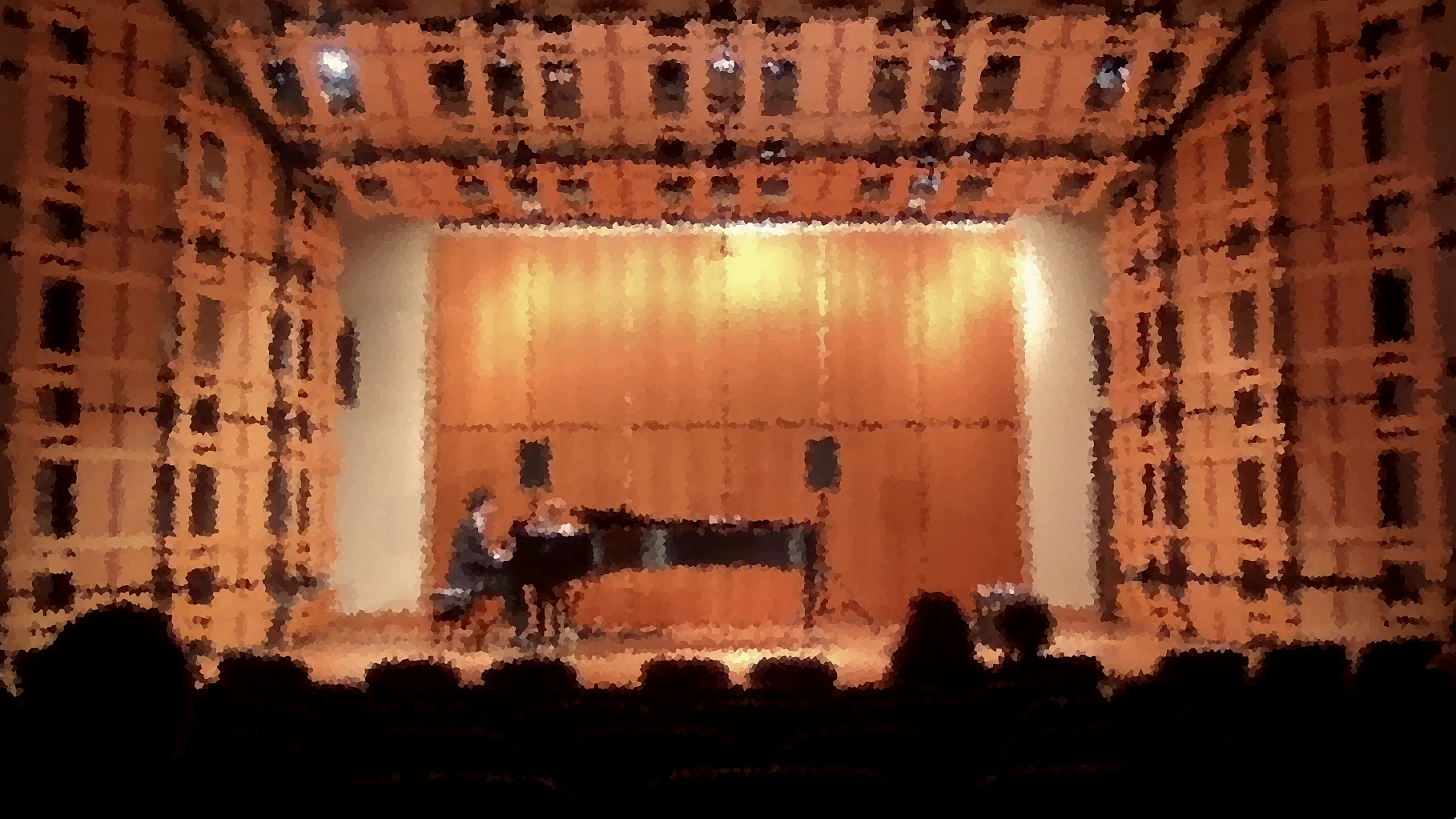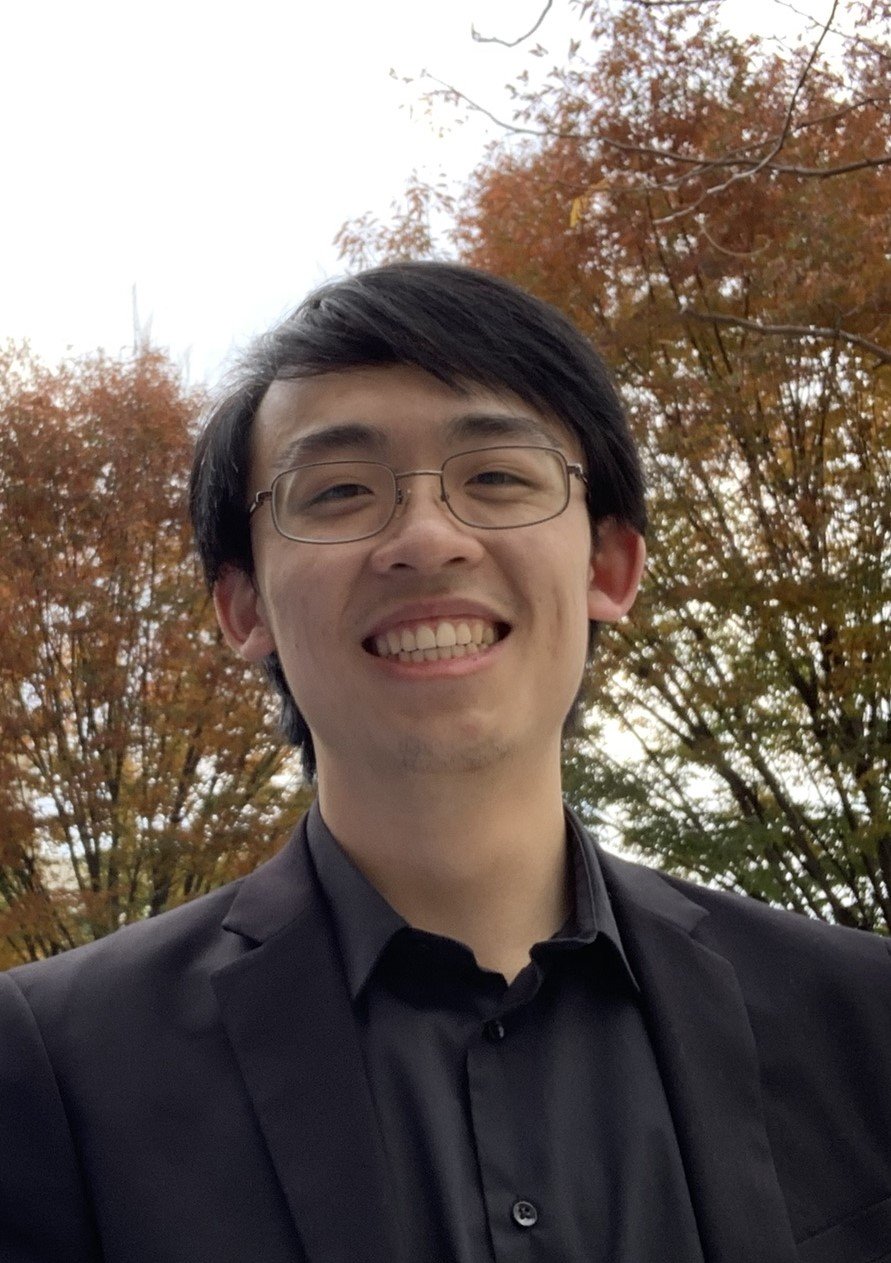
About Dean
Biography, Academics, and Professional Development
“A journey of a thousand miles begins with a single step.”
— Lâozî
Biography
-
Dean Quach (he/him, b. 2002) is an educator, composer, and multi-instrumentalist from Oaks, Pennsylvania. Playing piano since he was four, he has made his way through various concert and jazz bands, as well as chamber groups, orchestras, and wind ensembles, playing various instruments such as percussion, tuba, saxophone, bassoon, and piano. He is currently studying for his BM in Music Education (Band/Orchestra Emphasis) at Temple University, a classical piano concentration studying under Dr. Silvanio Reis. He has also studied composition under Dr. William Dougherty.
-
Dean Quach (he/him, b. 2002) is an educator, composer, and multi-instrumentalist from Oaks, Pennsylvania. Playing piano since he was four, he has made his way through various concert and jazz bands, as well as chamber groups, orchestras, and wind ensembles, playing various instruments such as percussion, tuba, saxophone, bassoon, and piano. He is currently studying for his BM in Music Education (Band/Orchestra Emphasis) at Temple University, a classical piano concentration studying under Dr. Silvanio Reis. He has also studied composition under Dr. William Dougherty.
Dean started arranging pieces and video game music around ten years old for piano to play for various school art shows and performances. Around the age of fifteen he started to arrange and compose pieces for sax quartet, wind quintet, and wind ensemble. Eventually he would organize and conduct his high school’s sax quartet and wind quintet. Since then, he has experimented with electronics and has composed works for wind bands, string ensembles, and chamber ensembles.
As a performer, he has played piano since the age of four. He then started to take lessons at the age of six, studying piano with John Hoffman at his elementary school. Later in his teenage years he would study under pianists such as Matteo Favero, Milena Urban, and Emilily Kosasih at the Community Music School located in Trappe, PA. Throughout his piano studies, he would also learn many secondary instruments, studying saxophone with Ryan Leaver as well as studying percussion under Jeff Ormsby, all to play in school concert and jazz bands. He had also self-studied tuba and bassoon, the former he would learn for his school and teach others to help fill out the low brass in middle and high school band, and the latter he would claim as his main secondary instrument, playing in his high school wind bands and orchestras. Unfortunately, the Covid-19 pandemic would reach its peak during his late junior year and he would only be able to study music theory his senior year, being completely virtual.
At Temple University, Dean would start to study classical piano under Dr. Silvanio Reis. After his short hiatus from music, he would slowly pick up different instruments and begin to play in various ensembles again. He had started with singing in the Temple University Chorale, getting to perform at workshops and concerts, the most well-known being the Mosaic and the traditional annual Kimmel Center concert. He would also play bassoon in the TU Repertory Orchestra and TU Night Owls (Community Band). Later he would sub for friends in different jazz bands, playing tenor and bari sax, which would lead him into playing bari sax for the TU Symphonic Band. Since then, he has played piano and bassoon in several chamber ensembles, and he would start his collaborative piano journey. Playing new pieces on different instruments for composition friends, as well as playing for recitals and accompanying juries. Currently he is the pianist in the TU Wind Symphony and has even played in the TU Symphony Orchestra and OWLchestra. He has also picked up tuba again, playing sousaphone in the TU Diamond Marching Band. Additionally, with much involvement with the TU Repertory Orchestra, he has now become the vice president, artistic director, and librarian, in which he now conducts and occasionally plays piano or one of his many secondary instruments to help out. Lastly, he plays a different instrument each semester in TUNO, working on proficiency to help himself as an educator. (As of 2025, he has worked through bassoon, percussion, flute, and oboe)
As an educator, he is a member of PMEA as well as NAfME-C. He has done pedagogical observations at various schools such as: Spring-Ford High School’s String Orchestra directed by Mrs. Emily McGranahan, private percussion lessons with Mr. Jason Chuong at the Julia R. Masterman School, and Temple University Community Band (TUNO) & Choir (Swinging Owls). He has also observed the Spring-Ford High School Choirs and gave a quick demo on warming-up and engaging your choir with Mrs. Yvonne O'Dea. He has also done observations within Temple University, looking at rehearsal strategies and techniques with community ensembles such as TUNO, OWLchestra, and Singing Owls. He is also heavily involved with conducting, having observed conductors from his high school, TUNO, TUSO, and TUWS. He was additionally granted a Wind Conducting Fellowship for the Wind Conducting and Teaching Workshop at Temple University.
-
Dean Quach (he/him, b. 2002) is an educator, composer, and multi-instrumentalist from Oaks, Pennsylvania. Playing piano since he was four, he has made his way through various concert and jazz bands, as well as chamber groups, orchestras, and wind ensembles, playing various instruments such as percussion, tuba, saxophone, bassoon, and piano. He is currently studying for his BM in Music Education (Band/Orchestra Emphasis) at Temple University, a classical piano concentration studying under Dr. Silvanio Reis. He has also studied composition under Dr. William Dougherty.
Dean started arranging pieces and video game music around ten years old for piano to play for various school art shows and performances. Around the age of fifteen he started to arrange and compose pieces for sax quartet, wind quintet, and wind ensemble. Eventually he would organize and conduct his high school’s sax quartet and wind quintet. Since then, he has experimented with electronics and has composed works for wind bands, string ensembles, and chamber ensembles.
As a performer, he has played piano since the age of four. He then started to take lessons at the age of six, studying piano with John Hoffman at his elementary school. Later in his teenage years he would study under pianists such as Matteo Favero, Milena Urban, and Emilily Kosasih at the Community Music School located in Trappe, PA. Throughout his piano studies, he would also learn many secondary instruments, studying saxophone with Ryan Leaver as well as studying percussion under Jeff Ormsby, all to play in school concert and jazz bands. He had also self-studied tuba and bassoon, the former he would learn for his school and teach others to help fill out the low brass in middle and high school band, and the latter he would claim as his main secondary instrument, playing in his high school wind bands and orchestras. Unfortunately, the Covid-19 pandemic would reach its peak during his late junior year and he would only be able to study music theory his senior year, being completely virtual.
At Temple University, Dean would start off as a pure mathematics major, studying and doing research with geometry and number theory under Dr. Charles Osborne. His main goal was to teach as love for it began with helping friends in grade school with both math and music. The ideal was to teach and do research on the side, however he would find this path rather isolating and a detour from his original plan of studying music. After his research on “The Perfect Cuboid” and talking at conferences about his results, he decided a change of pace was welcome, and he would audition to change his major. He would now study at the Boyer College of Music and Dance as a double major in music education (piano, band/orch.) and composition. Alas, he would be too busy and gain other responsibilities which would have him drop his double major with composition.
At Temple University, Dean would start to study classical piano under Dr. Silvanio Reis. After his short hiatus from music, he would slowly pick up different instruments and begin to play in various ensembles again. He had started with singing in the Temple University Chorale, getting to perform at workshops and concerts, the most well-known being the Mosaic and the traditional annual Kimmel Center concert. He would also play bassoon in the TU Repertory Orchestra and TU Night Owls (Community Band). Later he would sub for friends in different jazz bands, playing tenor and bari sax, which would lead him into playing bari sax for the TU Symphonic Band. Since then, he has played piano and bassoon in several chamber ensembles, and he would start his collaborative piano journey. Playing new pieces on different instruments for composition friends, as well as playing for recitals and accompanying juries. Currently he is the pianist in the TU Wind Symphony and has even played in the TU Symphony Orchestra and OWLchestra. He has also picked up tuba again, playing sousaphone in the TU Diamond Marching Band. Additionally, with much involvement with the TU Repertory Orchestra, he has now become the vice president, artistic director, and librarian, in which he now conducts and occasionally plays piano or one of his many secondary instruments to help out. Lastly, he plays a different instrument each semester in TUNO, working on proficiency to help himself as an educator. (As of 2025, he has worked through bassoon, percussion, flute, and oboe)
As an educator, he is a member of PMEA as well as NAfME-C. He has done pedagogical observations at various schools such as: Spring-Ford High School’s String Orchestra directed by Mrs. Emily McGranahan, private percussion lessons with Mr. Jason Chuong at the Julia R. Masterman School, and Temple University Community Band (TUNO) & Choir (Swinging Owls). He has also observed the Spring-Ford High School Choirs and gave a quick demo on warming-up and engaging your choir with Mrs. Yvonne O'Dea. He has also done observations within Temple University, looking at rehearsal strategies and techniques with community ensembles such as TUNO, OWLchestra, and Singing Owls. He is also heavily involved with conducting, having observed conductors from his high school, TUNO, TUSO, and TUWS. He was additionally granted a Wind Conducting Fellowship for the Wind Conducting and Teaching Workshop at Temple University.
Resumes
(last updated October 2023)
Music Education Resume
(coming soon)
Curriculum VitÆ
(last updated October 2023)
(last updated October 2023)
Professional Development
October 2023
These are the groups and organizations that I am a part of as a musician.
Some organizations are here to help me grow as a teacher by providing opportunities for further learning. I believe it is important to adapt and keep learning. Whether it be by attending conferences, seminars, and such… or by utilizing the materials these organizations provide. I am always ready to learn and accept new resources that will help me become a better teacher and improve my students along with myself as a whole. After all, I feel like learning with the students makes it easier for students to learn with me, and that way we can both/all become better musicians together.
Some of these organizations are here to help expose me to more music and help me grow as a composer. Compositional Musicality is difficult to improve, it requires exposing myself to new music and to expand my horizons and viewpoints. Being a part of these groups help to shed light on other current composers that have radically different backgrounds, yet all have the same story of creating music for ourselves and others to enjoy.



